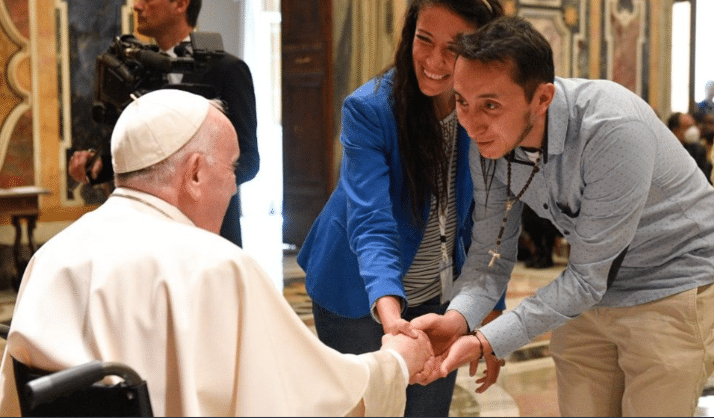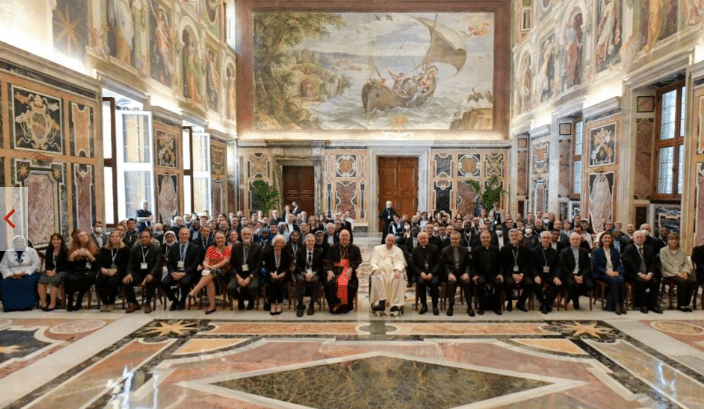The Pontifical Gregorian University and the Pontifical John Paul II Theological Institute are holding an International Conference on Moral Theology on 11-14 May, focusing on Amoris Laetitia to mark the 5th anniversary of Pope Francis’ Apostolic Exhortation on the family.
The Pope met Friday with participants in the conference and reflected on how the family can open up new paths for reflection in the study of moral theology.
He urged moral theologians to “dip into the rich spirituality that wells up from the family.”
The family, said the Pope, is the “domestic Church”, in which prayer and love intermingle with the concreteness of daily life to contribute to the growth of every family member.

High hurdles facing families
Pope Francis said that families across the globe are facing great strain, and that moral theology must take account of this aspect of Christian life.
“Family life is severely tried in our own days… Many families suffer from a lack of work, inadequate housing, or a place to live in peace, in an era of rapid change.”
Young people, he added, face enormous hurdles to creating a family of their own by marrying and having children.
Moral theology, said the Pope, must take up the challenges families endure and speak to them in a language that overcomes contrasts and promotes “a new creativity”.
Families transform Church
The family therefore plays a central role in the “missionary transformation of the Church” and her “pastoral conversion”, said Pope Francis, adding that various theological disciplines should work together to better plumb the depths of marriage and the family.
He called on theologians to ponder the question: “How can Christian families bear witness today—in the joys and struggles of married, parental, and brotherly love—to the Good News of the Gospel of Jesus Christ?”
Concrete experience of truth
Pope Francis went on to note that the synodal Church is built up in dialogue with the people of God, especially in an issue so central to Christian life as the family.
“The dialogical method invites us to overcome an abstract idea of truth, one removed from the lived experience of people, cultures, and religions.”
Families, he added, are filled with immense spiritual riches, and therefore offer an important reflection point for moral theology.
He said theology and pastoral care should give each other mutual support, while proclaiming that families are where God reveals His gifts and calls each of us to growth.

Bearing witness to joy of God
Discernment, said the Pope, is essential to helping theologians and pastors recognize the “inseparable link between conscience and goodness.”
Christian morals are far from moralism, and are instead focused on the grace of the Holy Spirit which gives rise to the practice of charity.
Theologians, concluded Pope Francis, are called to explore the connections between grace and freedom, virtues and laws, and the plurality of languages and the uniqueness of agape (love).
“The concrete experience of families is an extraordinary school of the good life… May the joy of love, to which families bear exquisite witness, become the symbol of the joy of God who is mercy and the joy of those who receive this mercy!”
